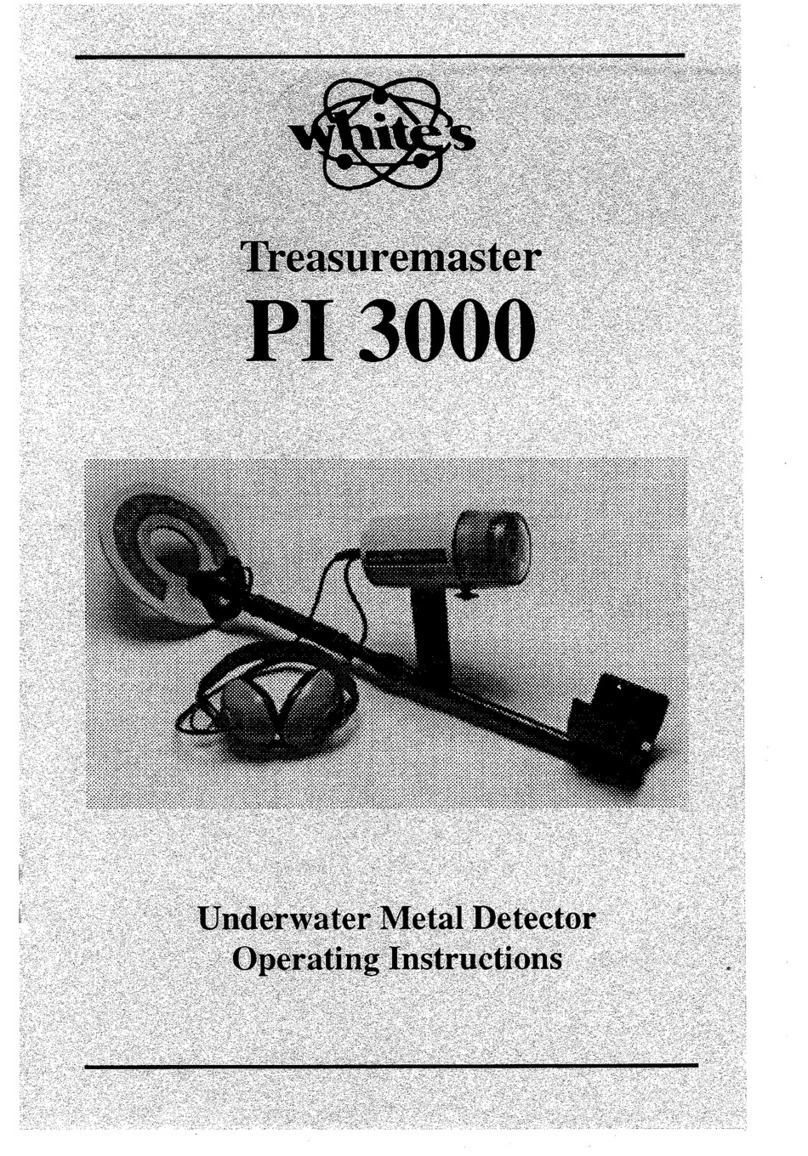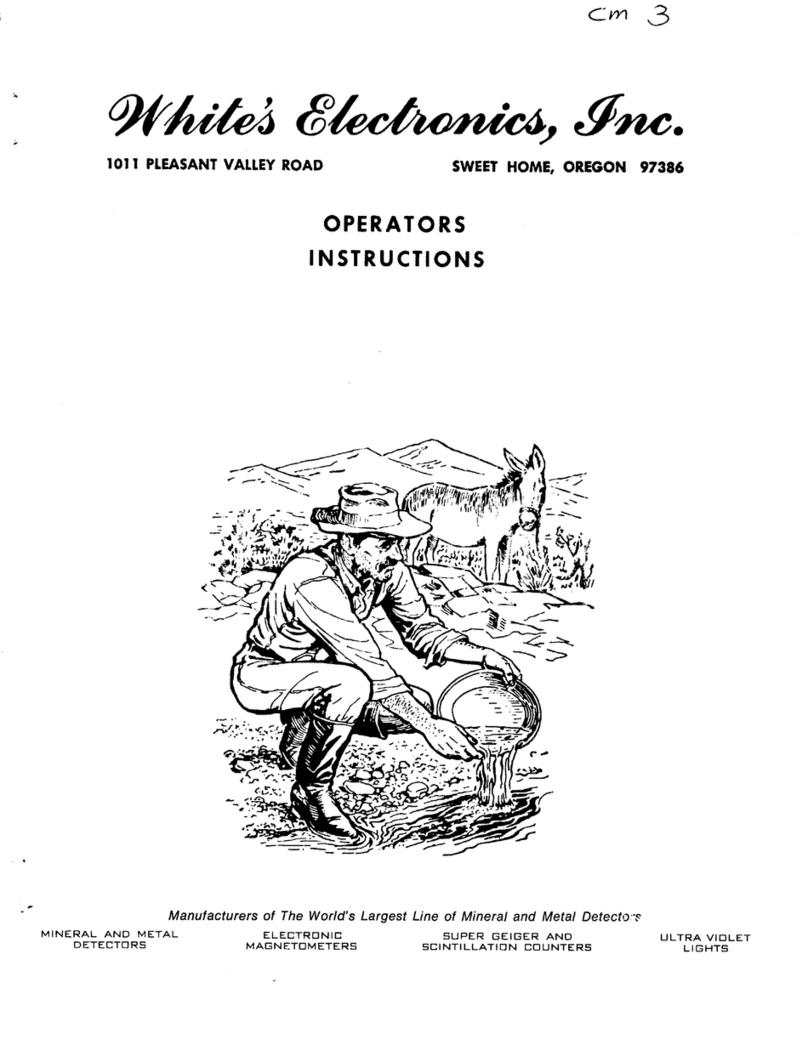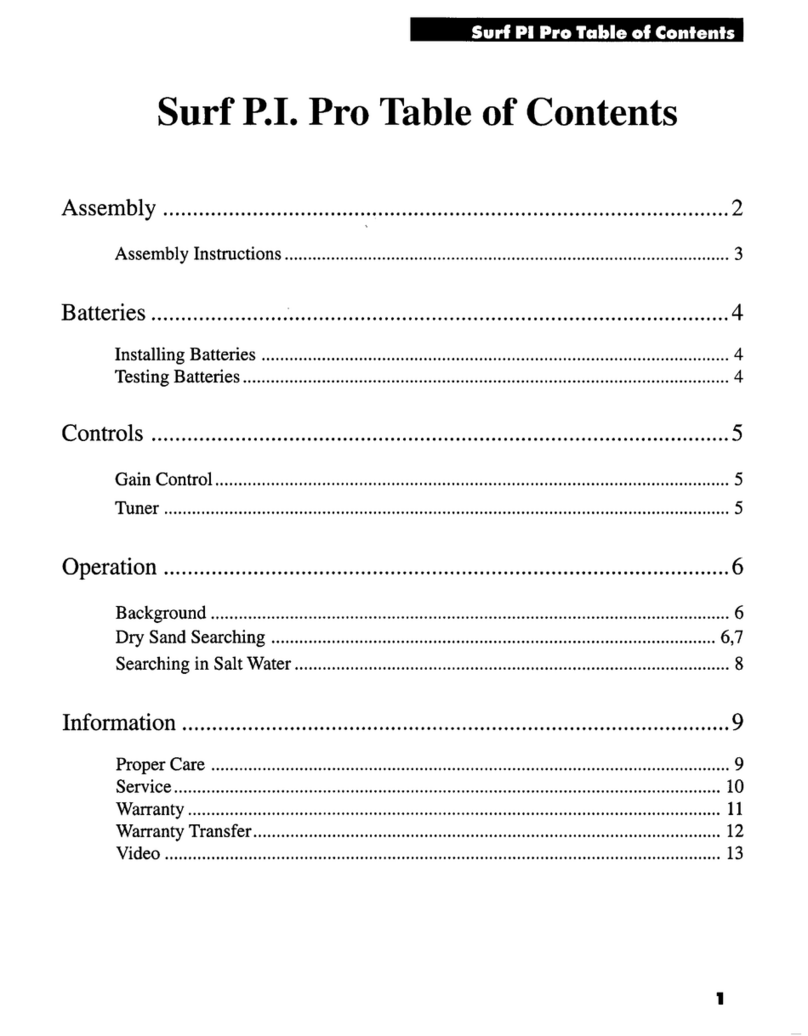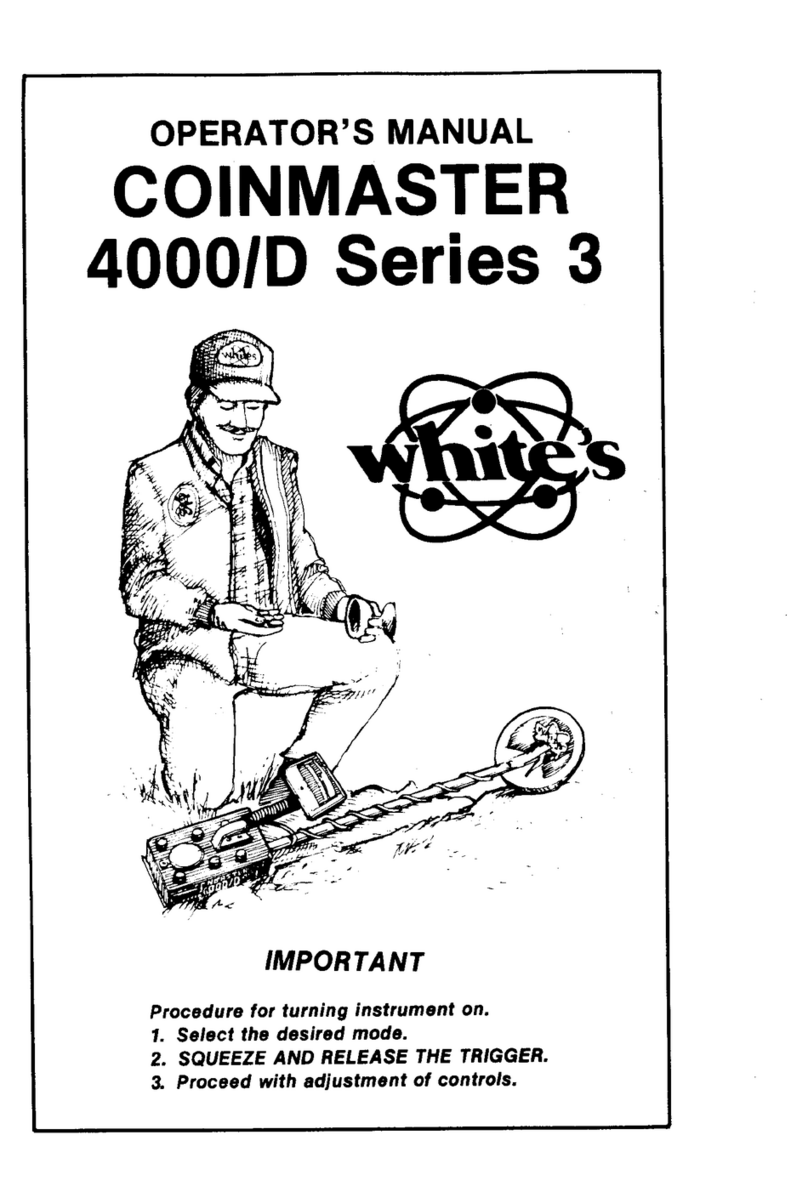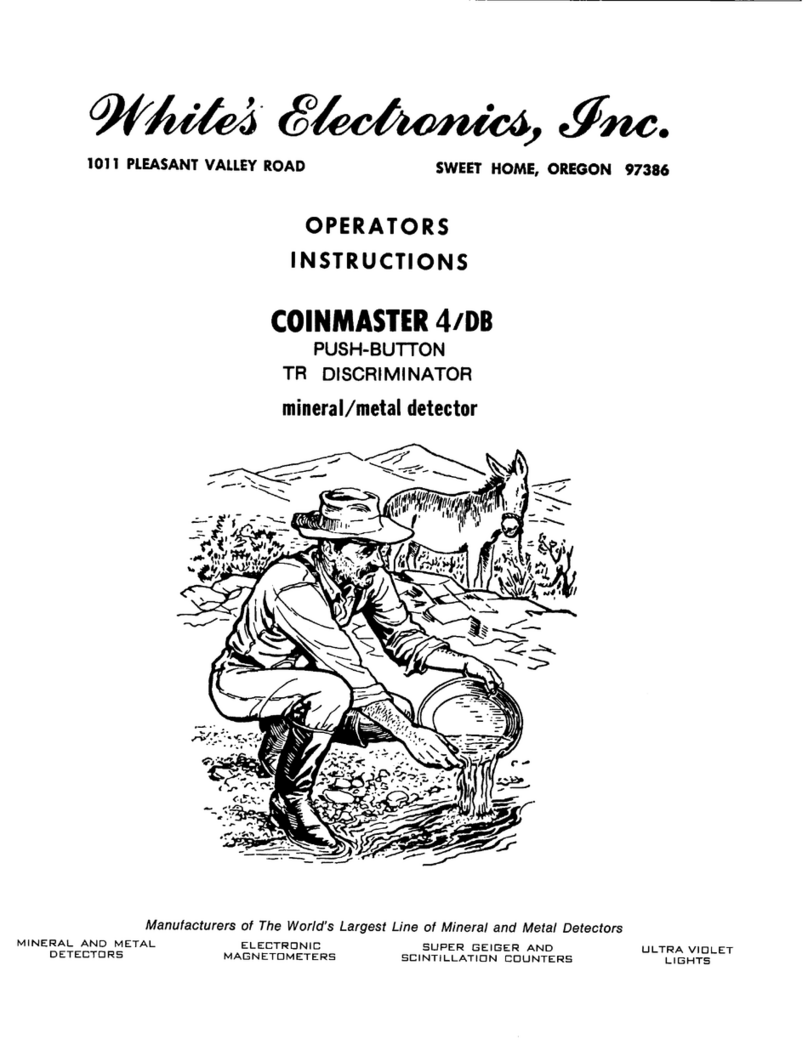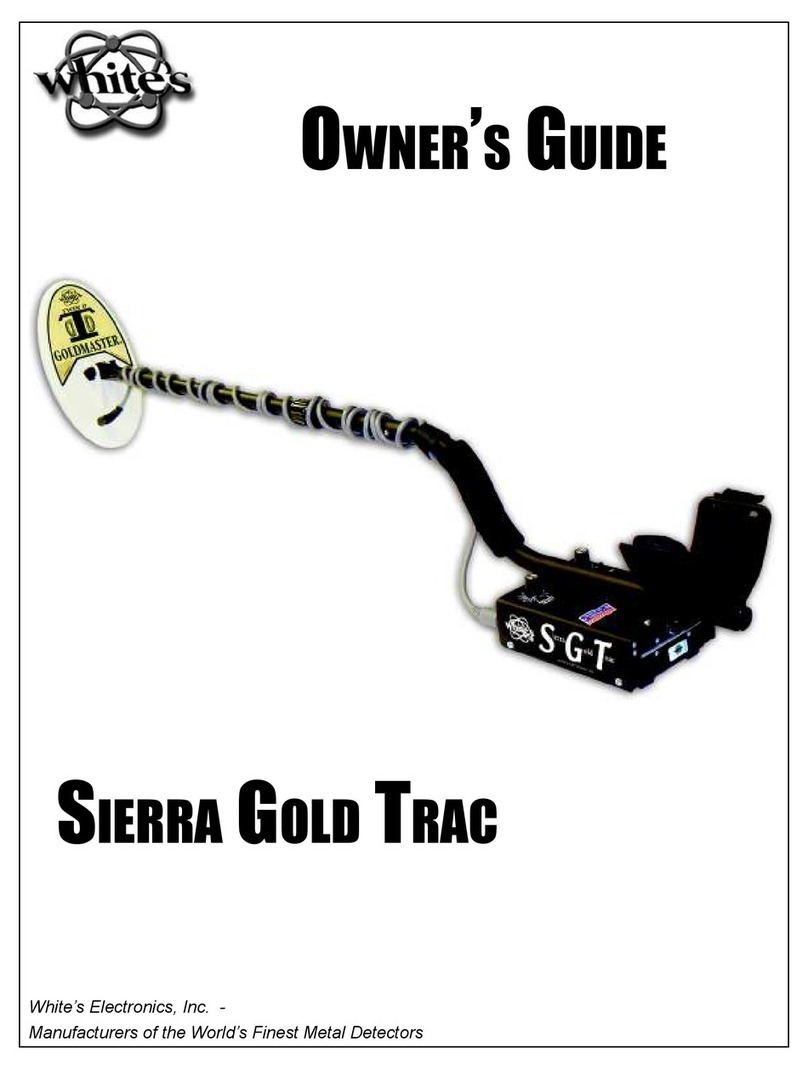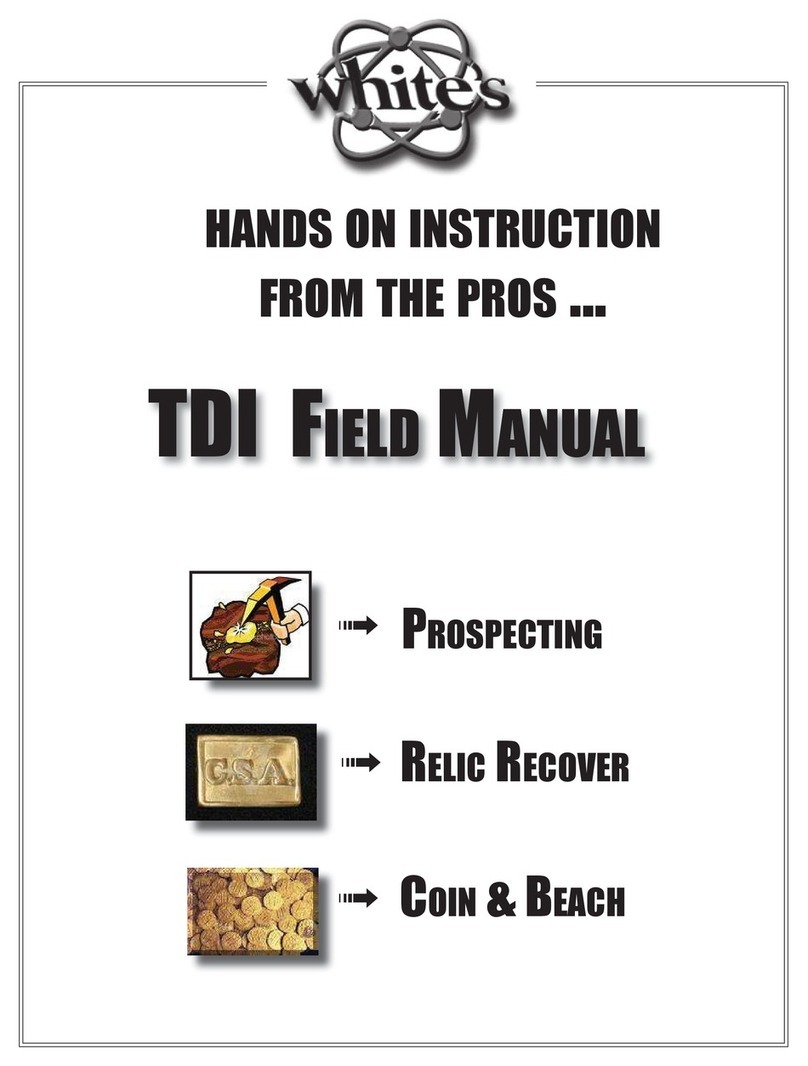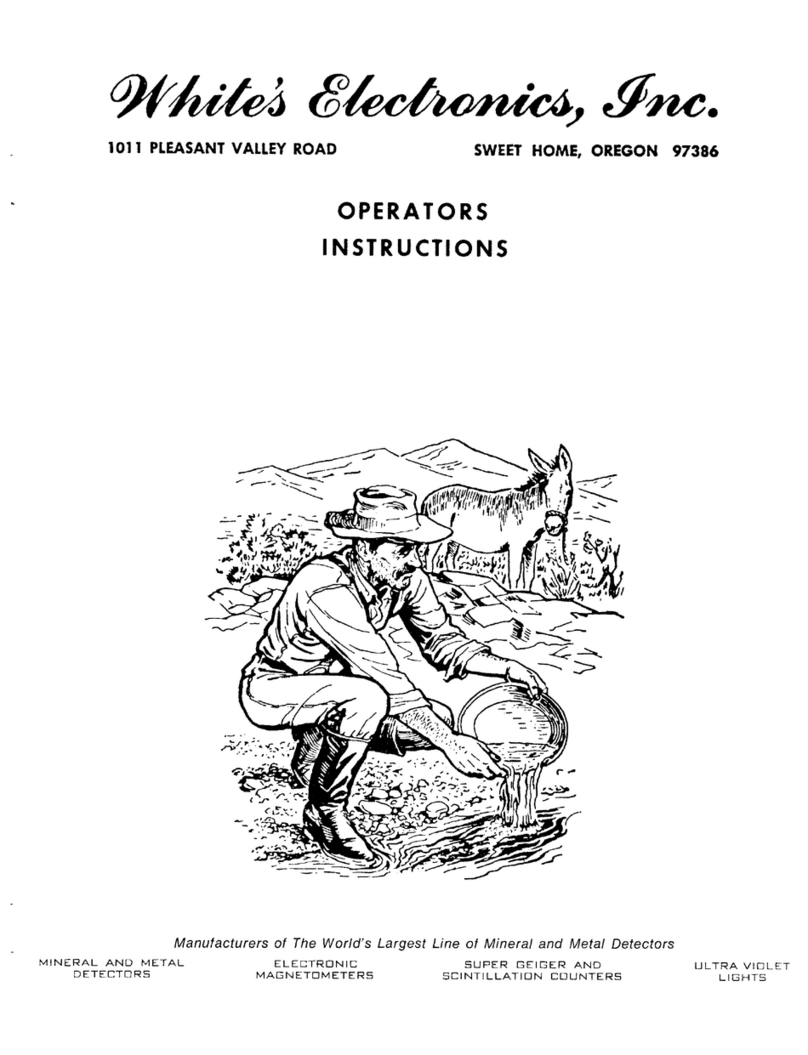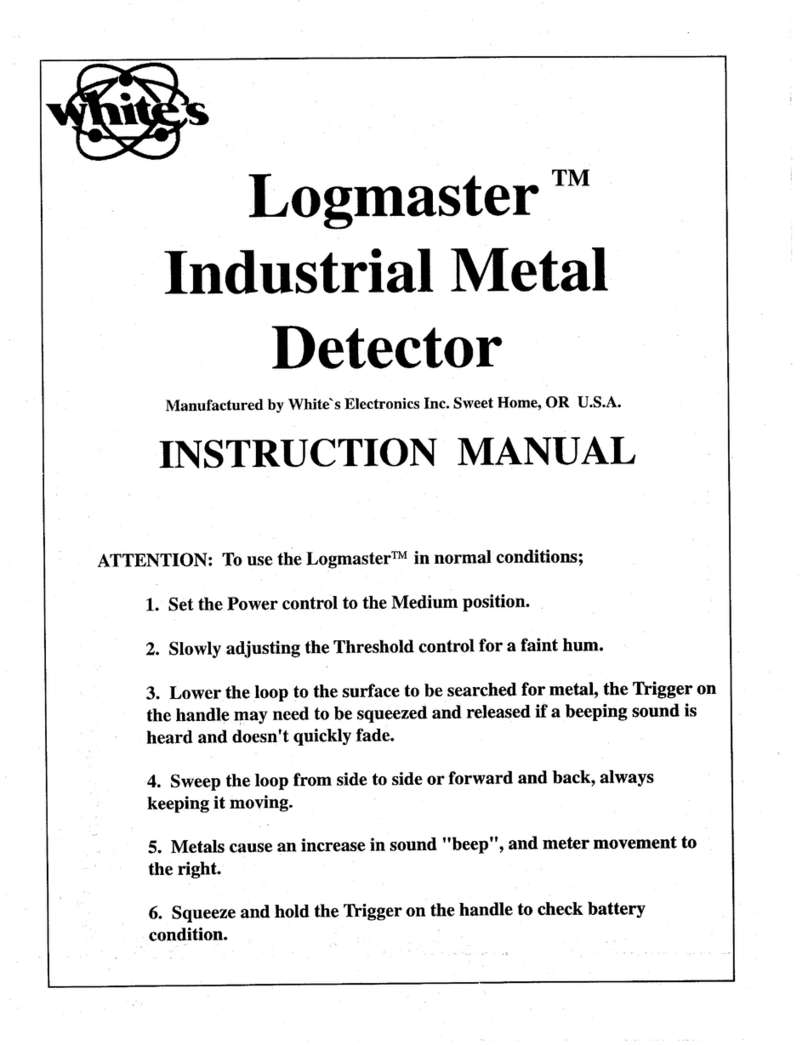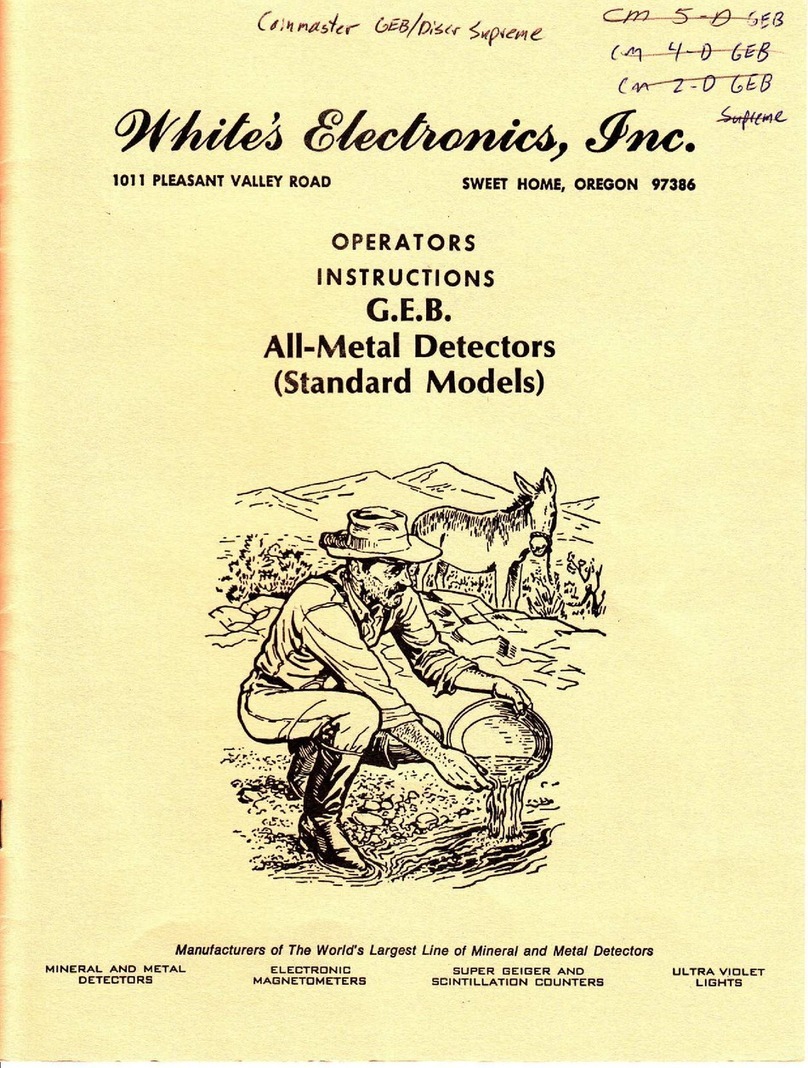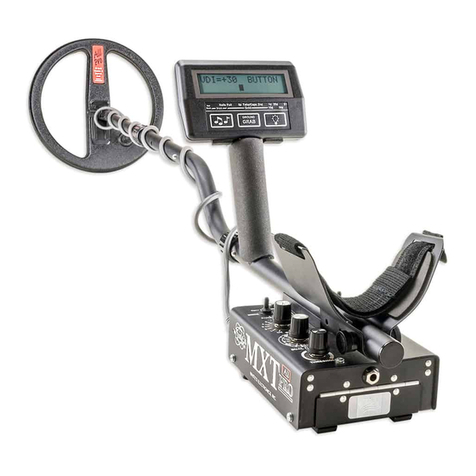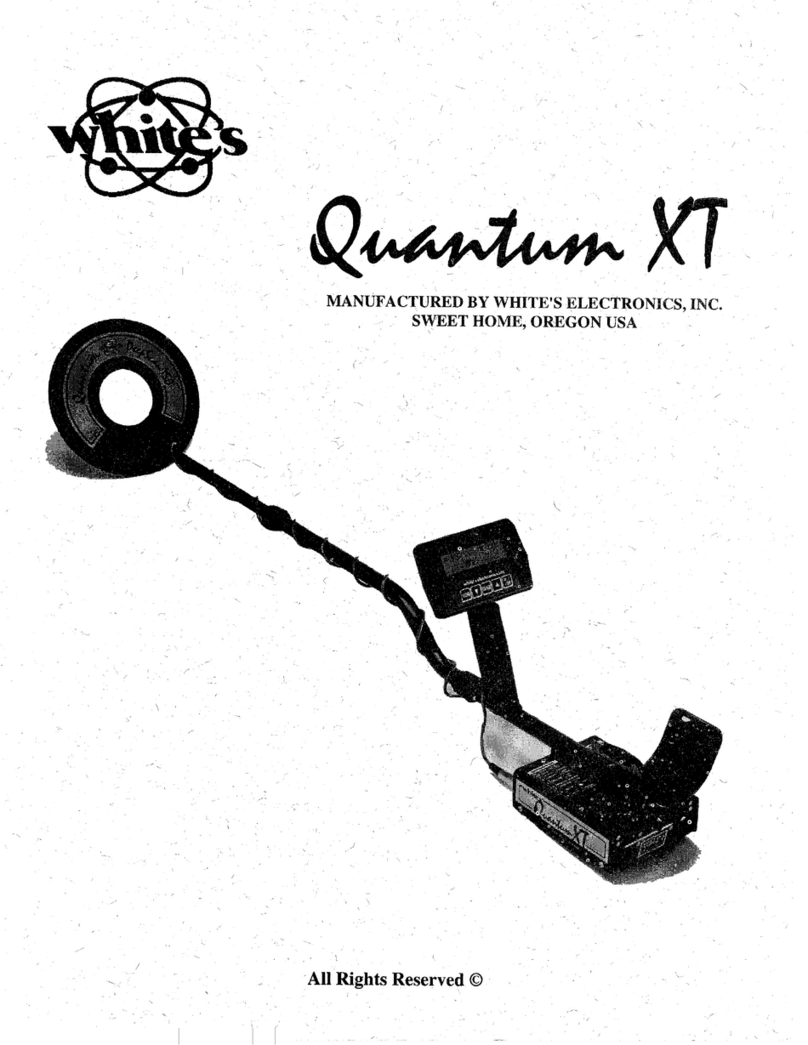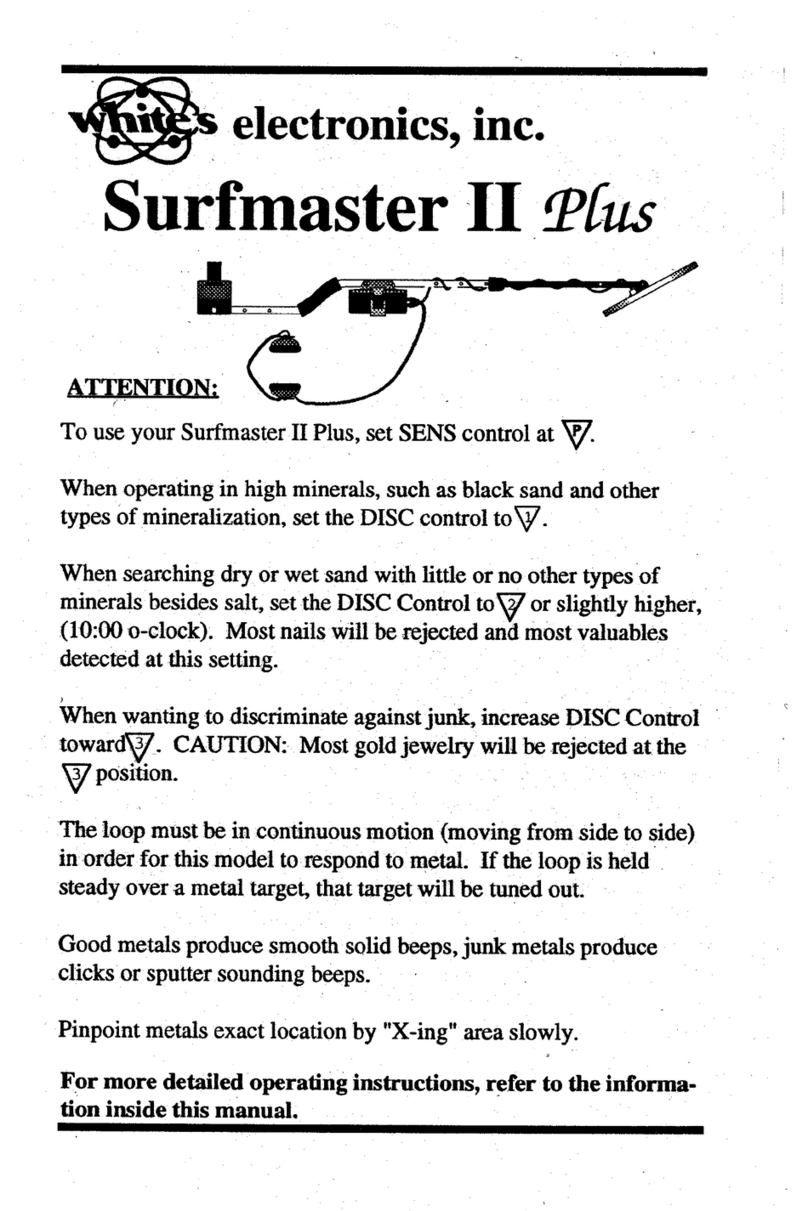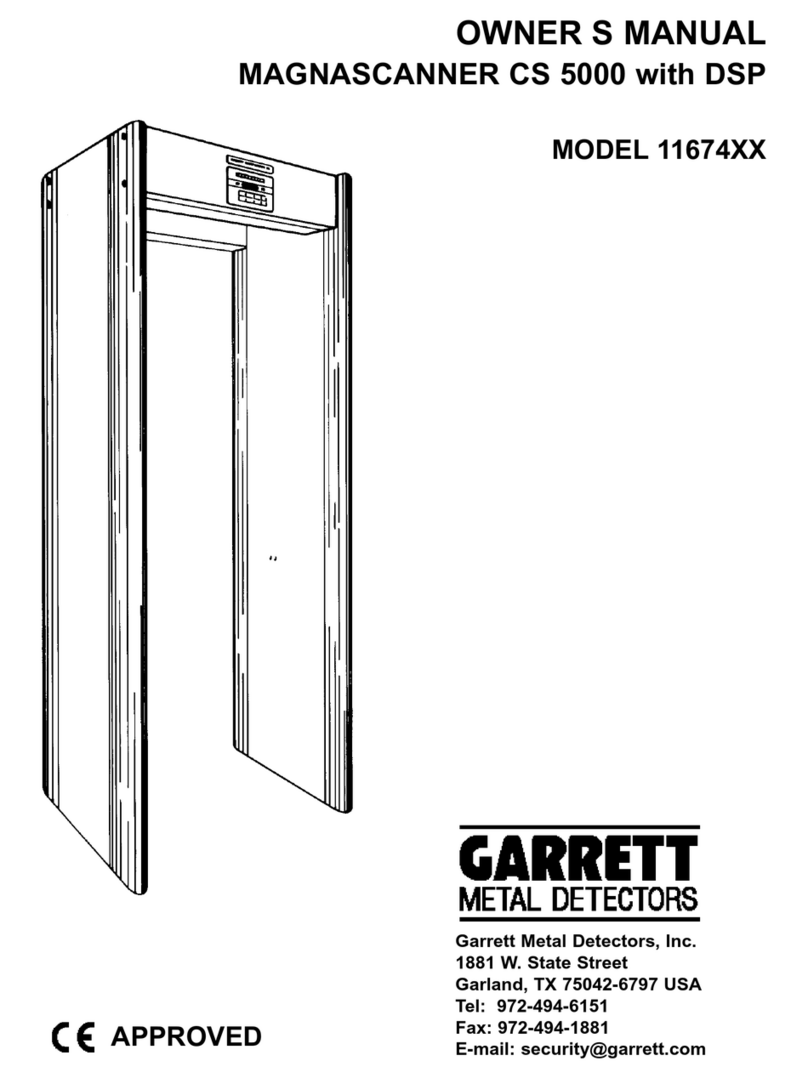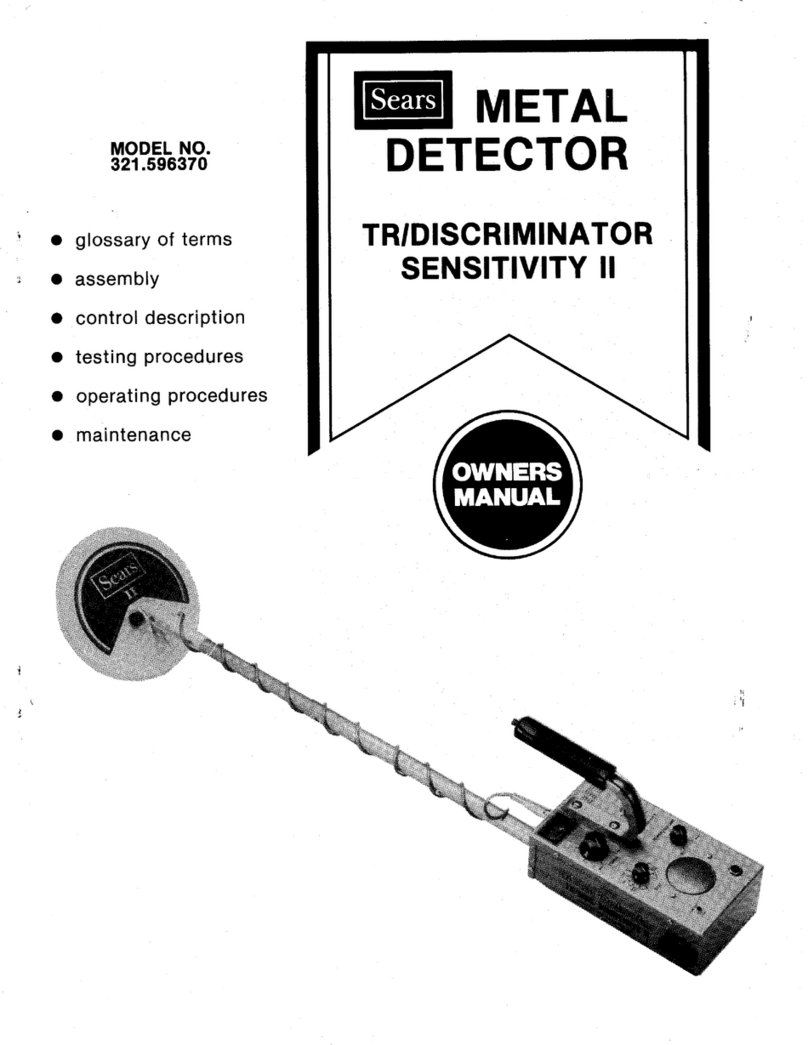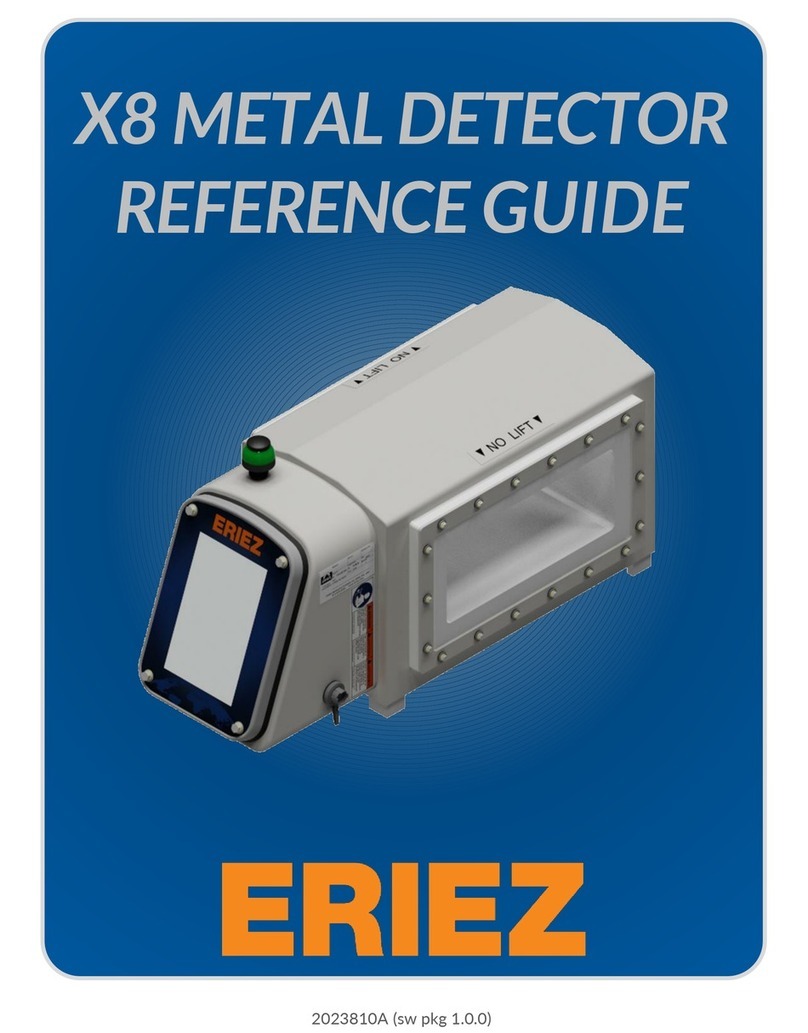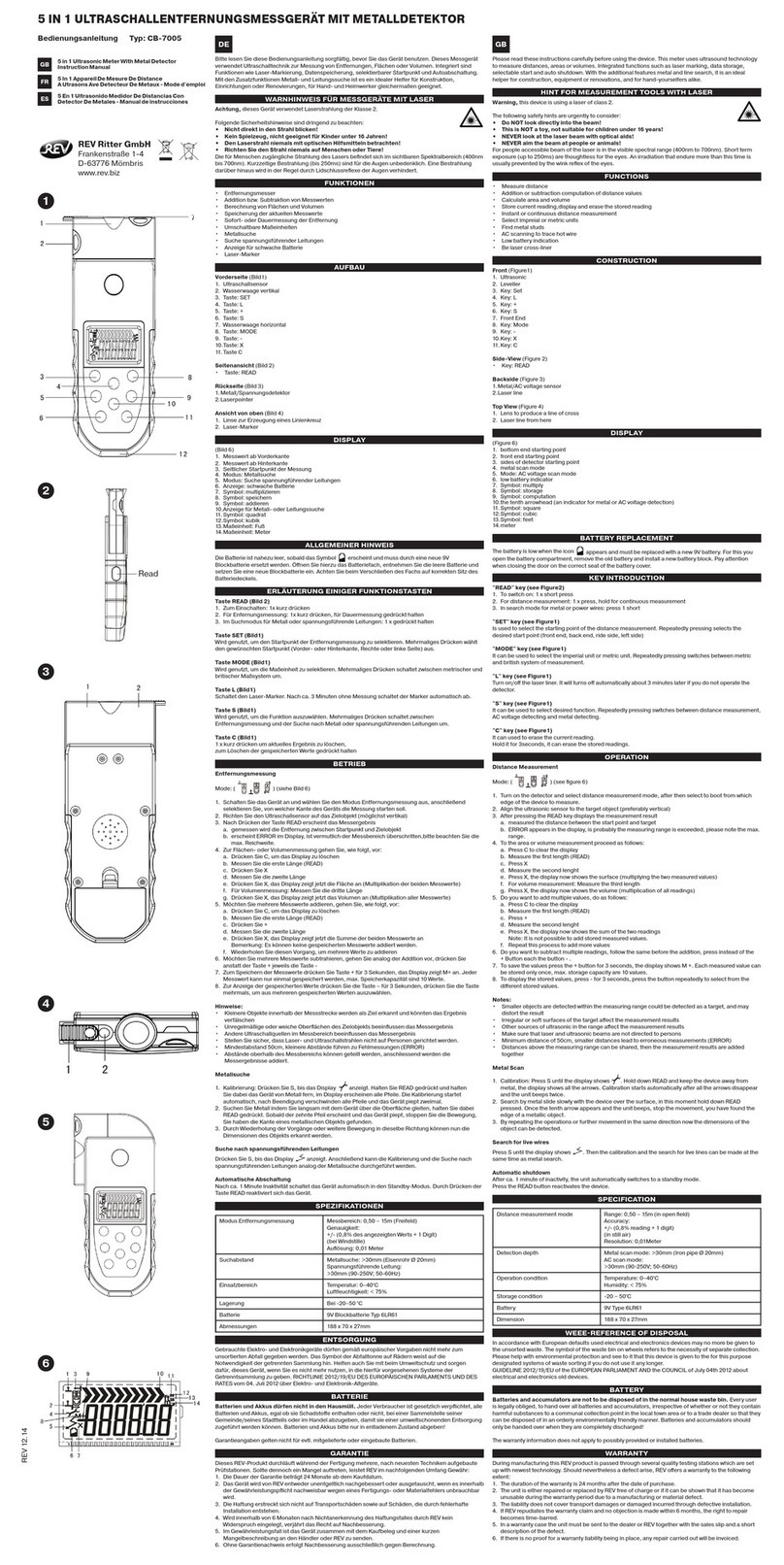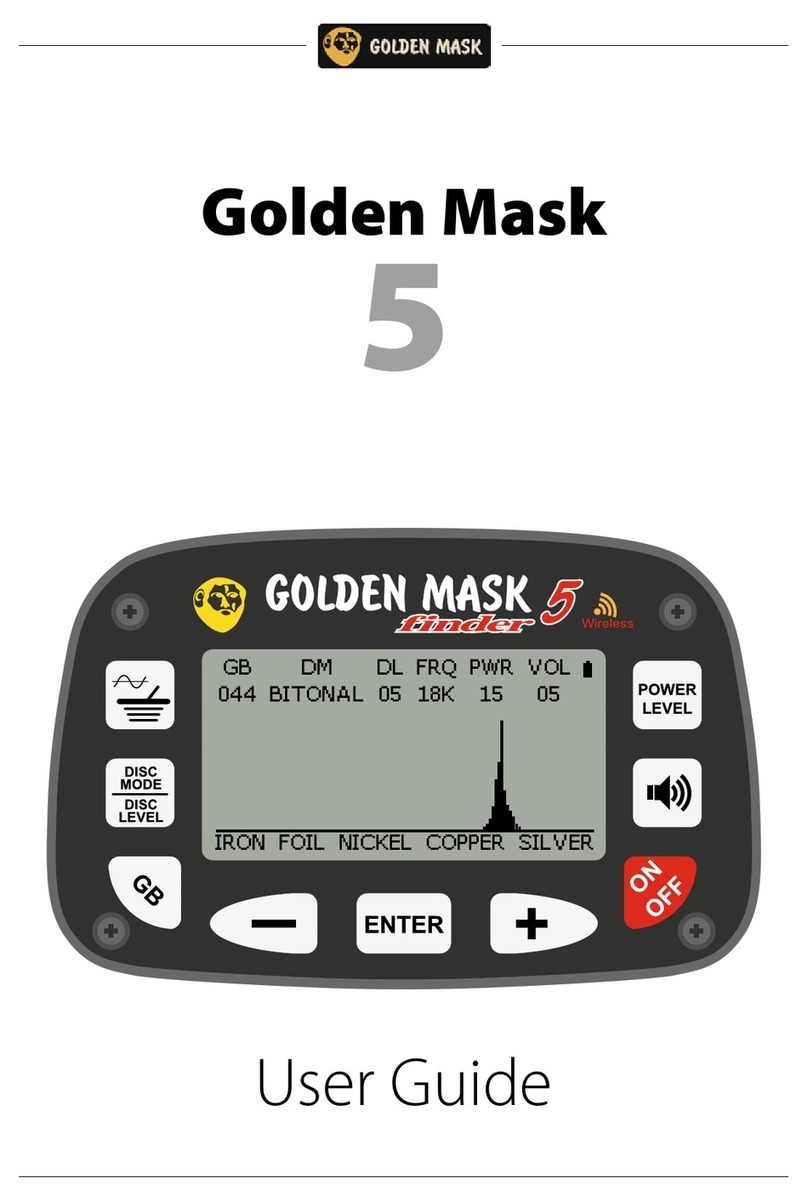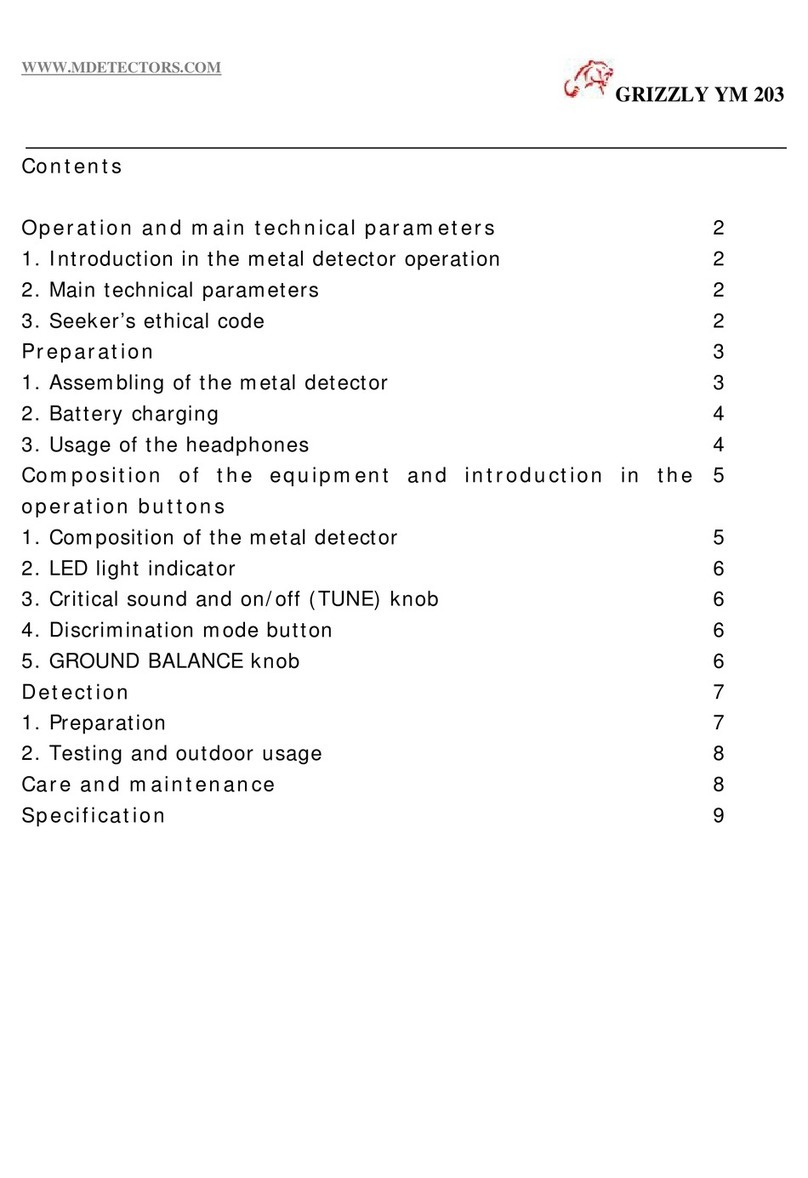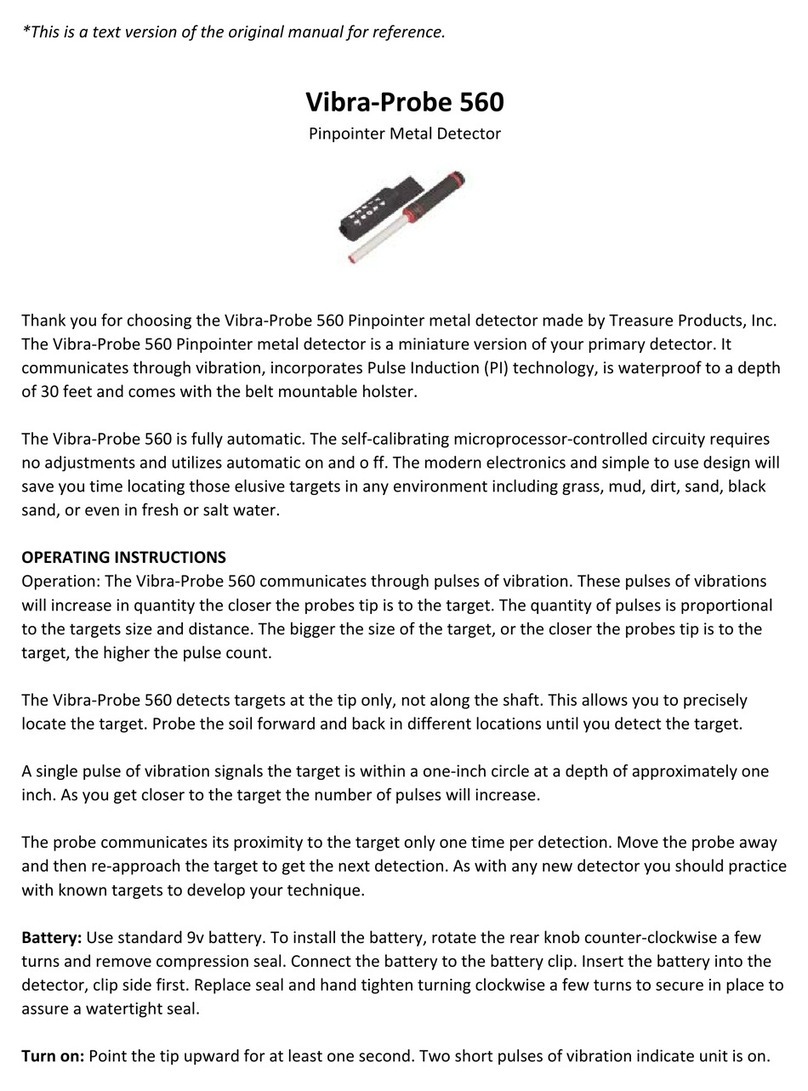
Assembly................................................................................................ 3
Batteries................................................................................................... 5
GM24k Quick Start Guide................................. 6
Controls ....................................................................... 8
Sensitivity Control..........................................................8
Sensitivity Adjustment................................................8
Volume / Threshold Adjustment ..........................10
Hot Rocks ............................................................................11
Variable SAT Speed Control.....................................11
SAT Adjustment...............................................................11
Target ID...............................................................................12
Audio Modes.....................................................................12
Iron Cancel (Discrimination)....................................13
Iron Cancel Adjustment.............................................13
Ground Balance Controls / XGB............................14
TracLock/Ground Grab...............................................15
Ground Scan......................................................................15
Searching....................................................................16
Pinpoint Techniques.....................................................16
Headphones .....................................................................17
Field Use and Tuning Tips .........................................18
Information.........................................................................................23
Proper Care.........................................................................23
Warranty ..............................................................................24
Goldmaster 24k Contents
2Garrett Metal Detectors
e Garrett Goldmaster® 24k (originally produced
by White’s Electronics) is a high-frequency induc-
tion-balance gold nugget detector. e GM24k
features a 54% increase in coil voltage over the
prior White’s GMT model, resulting in increased
sensitivity to small nuggets.
While testing this machine in Brazil, this was
shown in a tiny, 0.4 grain crystalline nugget found
encased in quartz. In some cases this much power
canbe challenginginareaswithheavilymineralized
soil. Even at lower gain settings, the GM24k is an
extremely “hot” machine on small gold and spec-
imen nuggets.
Experienced prospectors know more sensitivity
is not the only answer to increasing the odds of
success. A machine’s ability to track and cancel the
ground is oen the biggest challenge faced in the
search for gold. at’s why the Goldmaster® 24k
features a special ground tracking system called
“XGB” (Xtreme Ground Balance). It works with
multiple ground points to ensure stable operation.
e GM24k also features Iron/Hot-Rock cancel-
lation in both audio modes, which expands the
ground range even more for quiet operation in the
most challenging ground.
When the nuggets are few and far between, pros-
pectors sometimes have more success at sluicing,
panning, or dry washing. e GM24k Ground
Scan feature can help successfully track and mark
black sand or other mineral deposits in stream
beds, washes, or even under ground (where the
backlight comes in handy).
Other key features such as Variable Self-Adjusting
reshold (vSAT), Ground Grab, TracLock, and
adjustable audio options help users to set up the
machine as desired, based on ground conditions
and personal preference. Garrett believes in giving
the ability to adjust a machine for a wider variety
of conditions, hopefully resulting in more gold in
your pouch.
Reading this guide is a great way to get started
with your GM24k, but there truly is no substitute
for time spent out in the eld with the machine.
Maximize your success by learning the features of
the detector and also its language. With a combi-
nation of patience, research, and a little luck, you’ll
get your GM24k’s coil over gold.
Good luck and happy hunting!
Introduction
